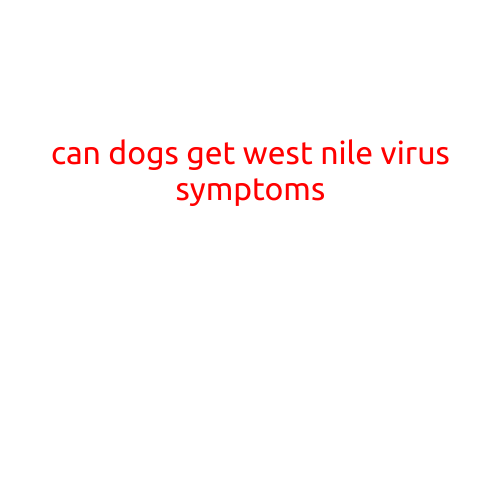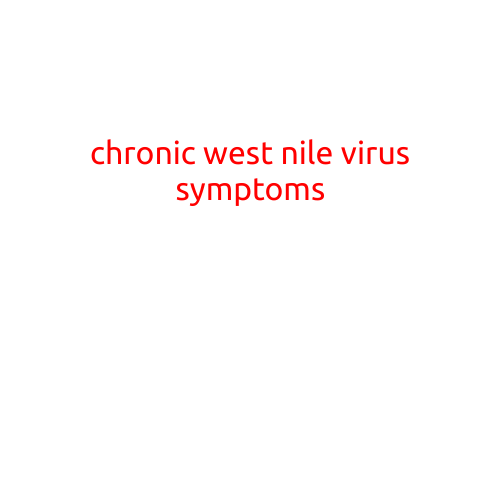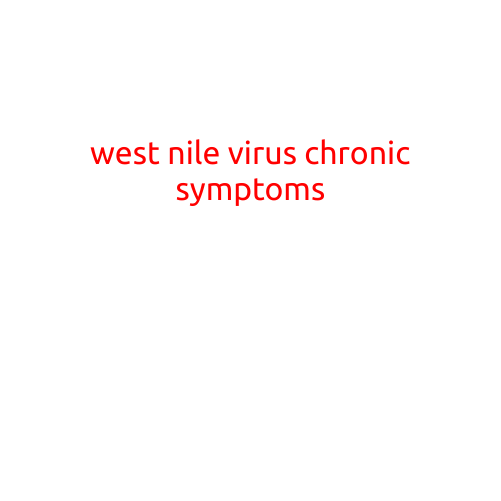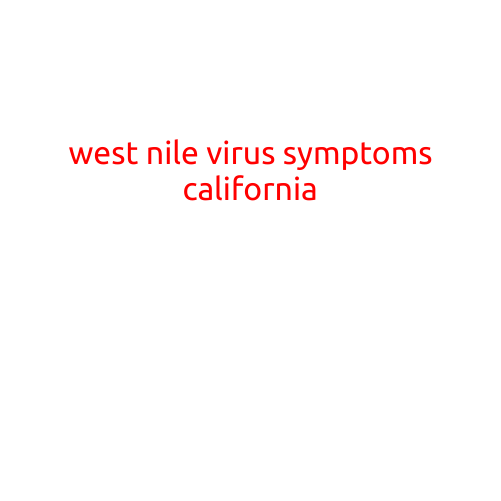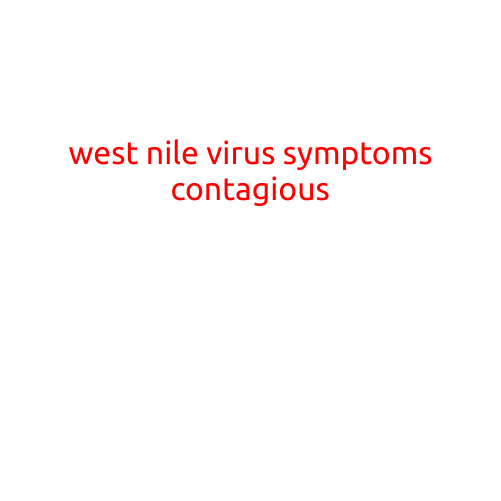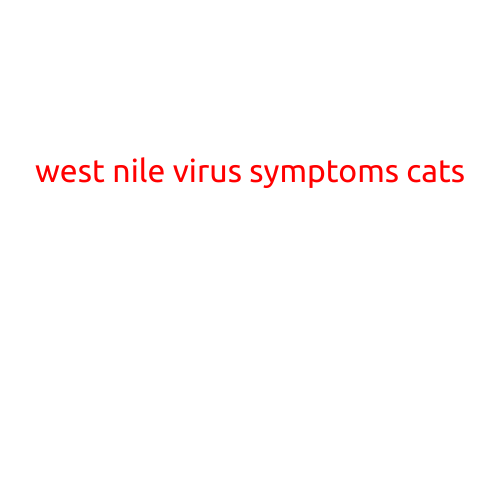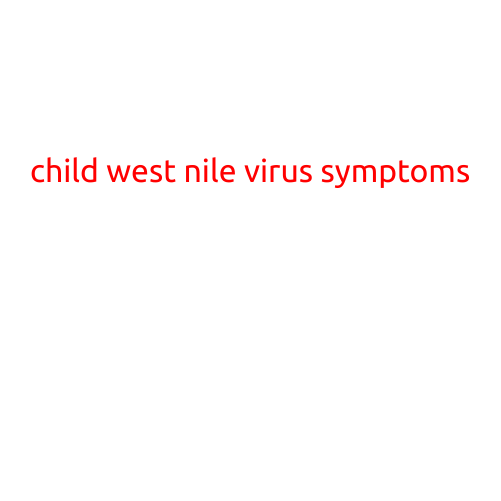
Child West Nile Virus Symptoms: What Parents Need to Know
West Nile virus (WNV) is a serious illness caused by a virus that is typically spread through the bite of an infected mosquito. While West Nile virus can affect anyone, children are at a higher risk of severe illness and more likely to develop complications from the virus.
As a parent, it’s essential to understand the symptoms of West Nile virus in children and how to recognize them early on. This knowledge can help you seek medical attention quickly and improve your child’s chances of a full recovery.
Symptoms of West Nile Virus in Children
The symptoms of West Nile virus in children can vary, but common ones include:
- Fever: A high temperature, often accompanied by a headache and body aches.
- Headache: A persistent and severe headache that can be confused with a common cold or flu.
- Fatigue: Feeling unusually tired or weak.
- Muscle weakness: Muscle cramps, stiffness, or weakness in the arms, legs, or face.
- Rash: A skin rash, which can be a sign of a more serious infection.
- Seizures: In severe cases, West Nile virus can cause seizures in children, which can be a sign of meningitis or encephalitis.
- Irritability: Children with West Nile virus may become more fussy, irritable, or have difficulty sleeping.
When to Seek Medical Attention
If your child is experiencing any of the following symptoms, seek medical attention immediately:
- Severe headache: A headache that is severe, persistent, or worsening over time.
- Seizures: If your child is having a seizure or has had a seizure in the past.
- Difficulty communicating: If your child is having trouble speaking, understanding, or responding to verbal cues.
- Weakness or paralysis: If your child is experiencing weakness or paralysis in their face, arms, or legs.
- Confusion or disorientation: If your child is having trouble recognizing people or places.
Prevention and Treatment
Preventing West Nile virus is crucial, as there is no specific treatment available for the virus once it’s contracted. Here are some ways to reduce your child’s risk:
- Use insect repellent: Apply insect repellent containing DEET, picaridin, or oil of lemon eucalyptus to your child’s skin and clothing.
- Wear protective clothing: Dress your child in long-sleeved shirts, long pants, and closed shoes to prevent mosquito bites.
- Avoid peak mosquito hours: Stay indoors during peak mosquito hours (dawn and dusk) when mosquitoes are most active.
- Eliminate standing water: Eliminate any sources of standing water around your home, as mosquitoes need water to breed.
If your child is diagnosed with West Nile virus, treatment will focus on relieving symptoms and managing complications. Antiviral medications may be prescribed to help reduce the severity of the illness.
Conclusion
West Nile virus is a serious illness that can have severe consequences, especially in children. By understanding the symptoms of West Nile virus in children and knowing how to prevent it, you can reduce your child’s risk of infection. If your child is experiencing symptoms, seek medical attention immediately to ensure the best possible outcomes. Remember, prevention is key, so take steps to protect your child from mosquito bites and reduce the risk of West Nile virus infection.
